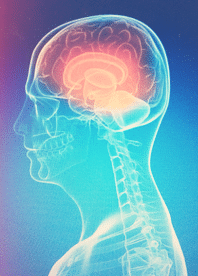Did you know that your brain contains approximately 100 BILLION nerve cells? Yep, I said a billion, and it’s these nerve cells, or neurons, that are affected the most by dementia. But let’s back-up for a minute and discuss what it actually means to have dementia. Most people assume dementia is a disease but it’s actually a general term used to describe the decline of a person’s mental ability. Think of dementia as an umbrella term for cognitive related diseases like Alzheimer’s disease (the most common type of dementia), vascular dementia, Parkinson’s disease, etc.
Okay, now back to neurons. As mentioned, the brain is packed with these cells that are not only everywhere but are also all connected, creating what scientists call a “neuron forest.” This forest of neurons allows for easy signaling to take place between cells, which creates what we know as our thoughts, feelings and memories. When these neurons are attacked or destroyed, they cause memories to fade, difficulty in expressing feelings and the inability to think properly, inevitably leading to dementia like diseases. A disease like Alzheimer’s destroys the brain’s neurons (which don’t regenerate like other body cells), ultimately shrinking and affecting all areas of the brain.
There are certain groups of people whose chances of developing dementia are higher, they are:
- People in their 60’s and 70’s are most susceptible to dementia.
- If dementia runs in the family then your chances of developing the disease increases.
- Those with health issues like:
- High blood pressure
- Obesity
- Smokers
- Diabetes
- Athletes (or anyone) who’s suffered a serious head injury.
- Some evidence shows that those who suffer from depression may have an increased chance of developing dementia.
If one of the above applies to you, please remember this does not mean you will definitely develop dementia; it just means you’re at a slightly higher risk than someone who does not fit into one of the above categories. Here’s the good news, there are lots of ways to help keep your brain healthy, and decrease the risk of dementia. There are lifestyle choices that you can make that both doctors and scientists believe can help protect the brain from dementia.
Here they are:
- Mental Stimulation – Get out the Scrabble and Sudoku! Games are a great way to keep your brain healthy and challenged.
- Sleep – A good night’s sleep is so important to keeping your brain in good functioning order. It’s during sleep that the brain forms and stores memories.
- Healthy Eating – Eating right is just as important for your brain as it is for your body. Some evidence has suggested that foods with omega-3 fats help prevent Alzheimer’s disease.
- Reduce Stress – Leading a stressful lifestyle can be very harmful for the brain. It can lead to brain shrinkage, problems with memory retention and etc. Consider meditation!
- Exercise – Exercise on a regular basis can reduce your risk of Alzheimer’s disease drastically. Get out there and kick the ball around, or even just a nightly walk, just go move! =)
For more information on the science behind dementia go here: https://www.alz.org/braintour/3_main_parts.asp.

